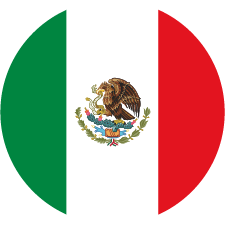The Business Value Triangle

We all want to maximize the value of our business. Unfortunately, all business owners struggle to get mental clarity around what is a good value and how to improve it. There are just as many owners who undervalue their business as there those who overvalue it.
To help entrepreneurs get clarity, I have developed 3 key data points you always want to consider when driving the value of your business. You can watch a detailed discussion of these on my newly released video “Scaling Up Cash” on Gazelles Growth Institute.
My Triangle of Value is based on these data points:
- Economic Value of your business (Based on a formula I discussed in Chapter 9 of my original book, “Simple Numbers, Straight Talk, Big Profits”)
- Current Market Value – What is the market will to pay right now given market conditions, terms, availability of multiple buyers, etc.
- Replacement Return – After you sell your business at any price, what is the replacement return you need with your after tax funds to get the same net income the business was generating at the time of sale.
Economic Value
I developed the Economic Value concept while searching for a technique to help support valuation formulas in buy/sell, stock option or stock grant agreements. Formulas are always problematic as business conditions change, but an underlying principle is that whatever price is agreed to, it must be fundable from the “after-tax” cash flows of the business.
The formula is quite simple, the last 3 years pre-tax net income plus equity. It even complies with the IRS value approach since it relies on both earnings stream and equity. As we have applied this formula it has worked amazingly well because it forces all parties to focus on my favorite 2 things: Profit and Capital!
The only variations we sometimes apply are more heavily weighting the most recent years if years one and two were impacted by non-repeating events or the business was in start up mode. For businesses that have been in business 5 years or more, I strongly lean on the last 3 years instead of weighting. The only adjustment we see to equity is that you should reduce equity for untaxed assets if the company is cash basis for taxes.
Market Value
This one is straight forward but may be difficult for many entrepreneurs to come by. There are always transactions of similar businesses but it is not always easy finding accurate information. Beware of second hand stories. Someone may tell you they got 5 times EBITDA, but they did not tell you how much they had to take as an earn-out or that they had to clear all their debts out of proceeds. This value is also hard to come by for businesses that are below $10 million in revenue. Smaller business sales may not use equity advisors and the deal structures mix compensation and asset sales that distorts the true net value.
Most value discussions will use either a multiple of revenue or net profits (adjusted for owner discretionary expenses). Those values are always a starting point for adjustments as you move to closing and I hope you are good at negotiating from there!
Replacement Value
This is the data point most people miss. My research tells me that a business that has 10% net income produces a minimum return on equity of 50%. Most are closer to 100%. That is even true when those businesses meet my Core Capital standard of 2 months of operating expenses in cash.
When your business is profitable, you have to ask this essential question “What can I invest the after tax proceeds of the sale in to get the same amount of net income I am currently getting?”
If I have a $10 million revenue business, making $1 million in pre-tax net income and I sell it for $5 million (5 times EBITDA), my after tax proceeds would be around $4 million (assuming capital gain and basis). To achieve $1 million of annual return on $4 million of invested assets, I would need to get 25% annual return. In this case, I would have to either be sick of my business, or concerned about future risk to take that deal.
Summary
If the replacement return needed is above 15%, I have to be concerned about future risk to say yes, if it is below 15%, it is a green light deal to me. The Economic Value will never make that level because it cannot be cash flowed with level operation of the business. That is important to know if you plan to transition ownership to management or family, you will most likely give up some value of the business because the business has a limited capacity to pay off a sale and grow at the same time. If you are doing planning to drive your business value, apply the triangle to it to give you clarity.



